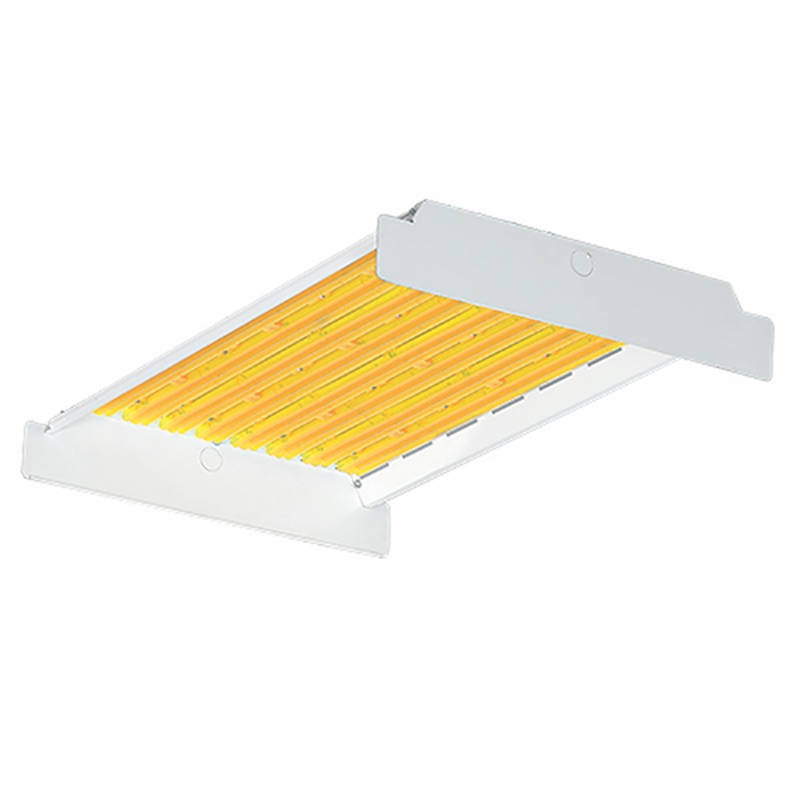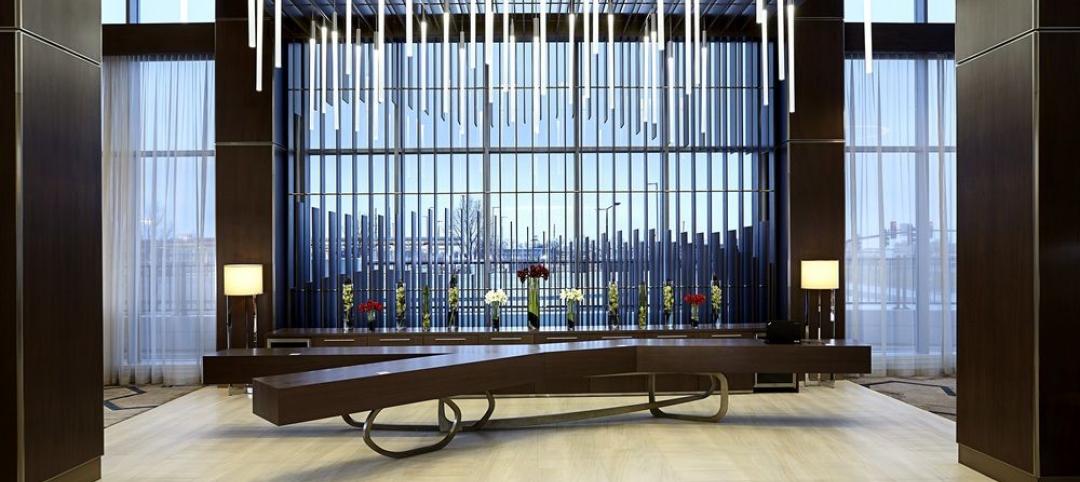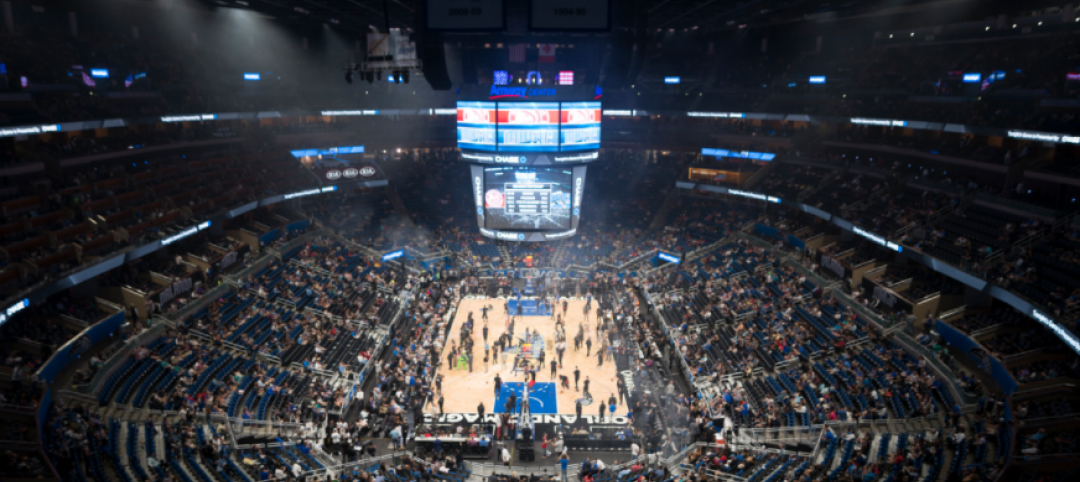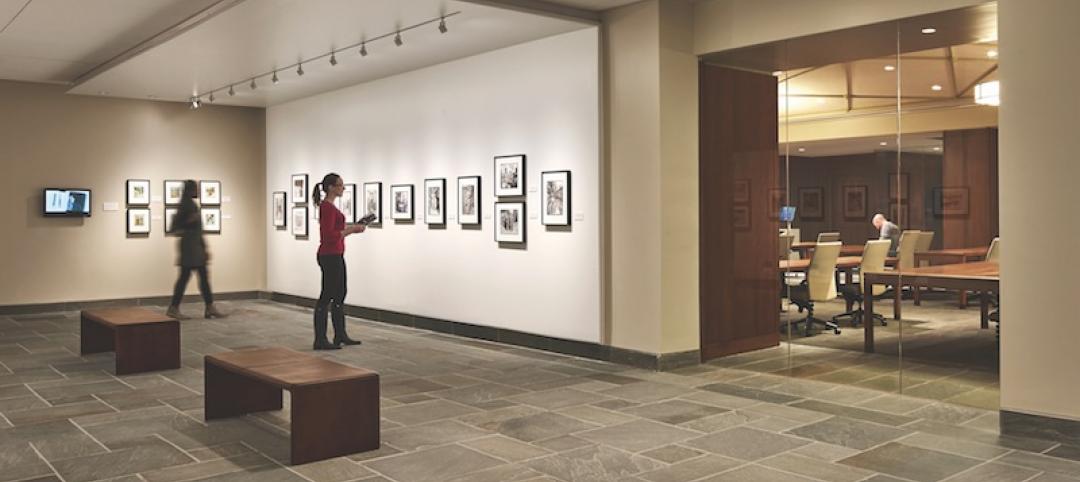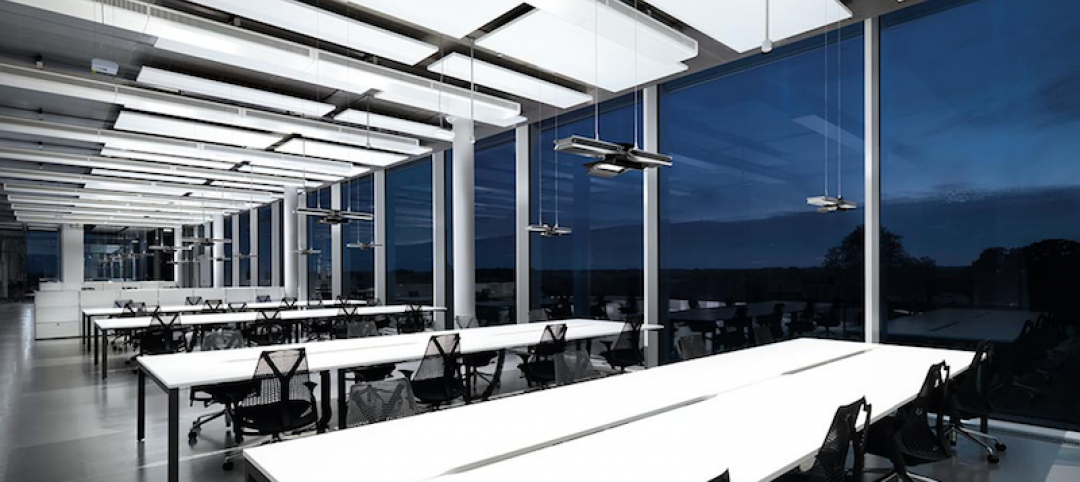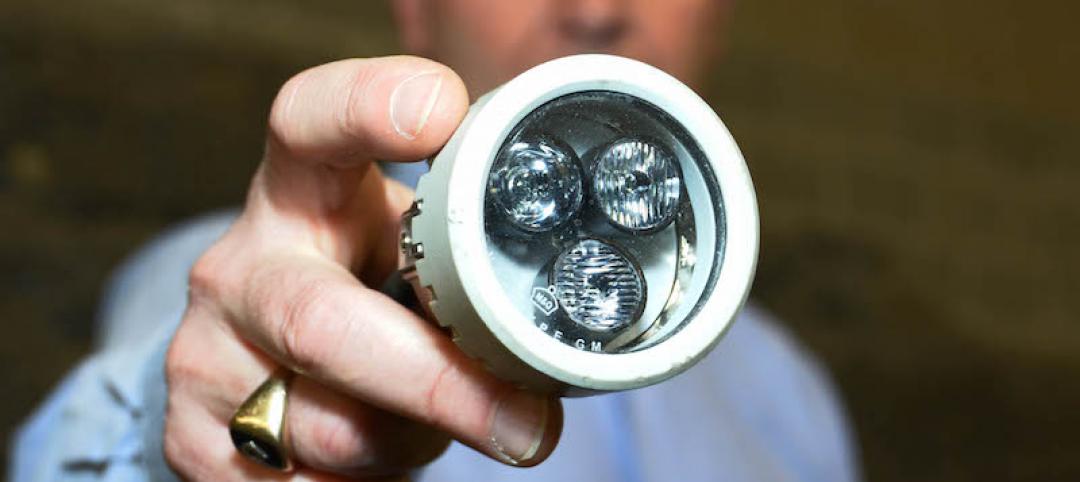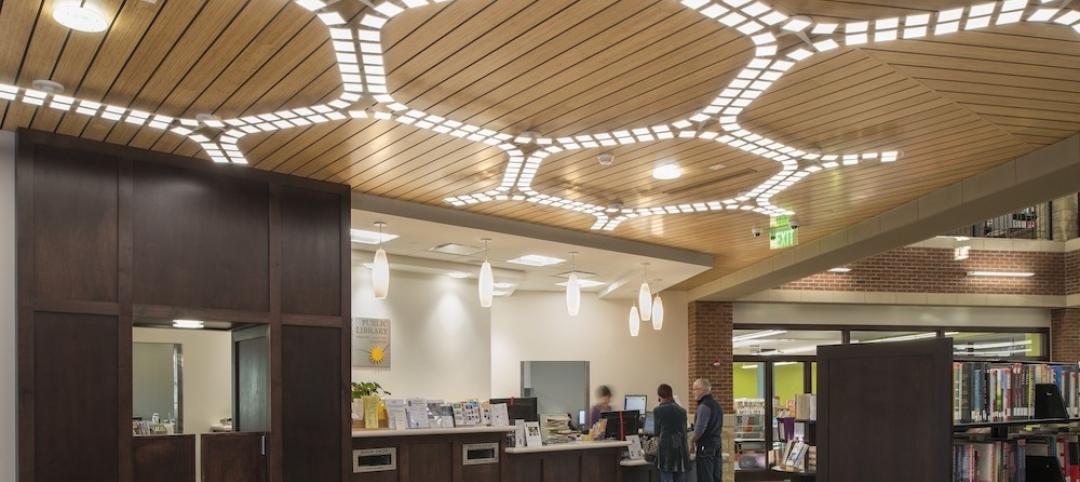Companies that produce milk, beer, pharmaceuticals, and semiconductors have been wary to adopt LED technology because the blue-light wavelength causes photochemical degradation and photo-oxidation damage to the products being made.
These industries have had to use colored packing and UV coating solutions, which can increase power consumption and energy costs, to protect against the harmful blue light. New lighting technology from Hubbell Lighting looks to solve the problem. The SpectraLoc LED blue-spectrum high-bay fixture converts harmful blue light under 500 nanometers to benign green and yellow light. The light applies what is called the Stokes Shift effect, where wavelengths of light below 500 nanometers are absorbed by a unique optic found in SpectraLoc and are then retransmitted at longer, nondestructive wavelengths.
SpectraLoc can exceed 19,000 lumens while only consuming 112-175 watts, averaging 108 to 110 lumens per watt.
Related Stories
Lighting | Aug 2, 2017
Dynamic white lighting mimics daylighting
By varying an LED luminaire’s color temperature, it is possible to mimic daylighting, to some extent, and the natural circadian rhythms that accompany it, writes DLR Group’s Sean Avery.
| Jun 13, 2017
Accelerate Live! talk: Next-gen materials for the built environment, Blaine Brownell, Transmaterial
Architect and materials guru Blaine Brownell reveals emerging trends and applications that are transforming the technological capacity, environmental performance, and design potential of architecture.
Lighting | Jun 7, 2017
5 steps to significant annual savings: LED lighting of Amway Center’s Arena Bowl & Practice Court
Lighting retrofit of Orlando’s Amway Center slashes energy costs
Lighting | Apr 10, 2017
Lighting consultants and samples are necessary in the wild west LED landscape
As LED lighting sources proliferate, AEC firms are more diligent about validating performance before diving into new products.
Lighting | Dec 8, 2016
A new light from Dyson can last for 22 years and uses just 90W of electricity
The light is fitted with just two LEDs and uses custome-engineered lenses to spread the glow.
Lighting | Oct 6, 2016
Healthcare systems lighting their way to savings
There has been a rapid improvement and availability of LED products as primary light sources in most healthcare facility applications.
Building Tech | Aug 26, 2016
NBBJ’s Goldilocks sensor technology can help employees find a workspace that is just right
The technology measures light levels, humidity and temperature, motion, and sound.
Lighting | Apr 11, 2016
Lighting experts explore applications for OLED, LiFi, and laser diodes
LEDs still have room for improvement. That may explain why this technology has yet to be challenged competitively by other solid-state products that are either pricier, less efficient, or unavailable commercially.


